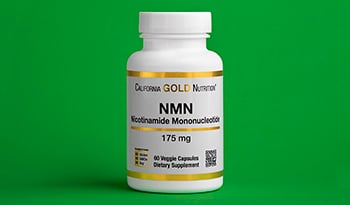Pro-Aging: A New Way to Define Yourself at Midlife and Feel Good Inside and Out

People have been searching for the fountain of youth for centuries, hoping to find a magic bullet, special waters, or scientific solutions that could reverse aging. Ancient Indians’ anti-aging beauty product of choice was sandalwood, an herb still used today in skincare and haircare products. The Egyptians tried to maintain a youthful, thick mane by applying rosemary and almond oil to their scalps to stimulate hair growth and crocodile fat to prevent baldness. The Ancient Greeks took mineral baths, used honey as a skin moisturizer, and slathered on olive oil to achieve a youthful glow.
Crocodile fat aside, while many of these ingredients are still used today, people are starting to view aging differently. We’re shifting from an anti-aging to a pro-aging stance. Rather than searching for a way to preserve our youthful appearance or reverse aging, we’re looking for ways to support the body we have at the age we are.
Why? Thanks to better health care, hygiene, and improvements in diet and lifestyle, we’re living longer, healthier lives.
According to the United States Census Bureau, between 1960 and 2015, the average life expectancy increased by almost a decade and is expected to increase by about six years by 2060 to 85.6. For the first time ever globally, there are more people aged 60 or older than under five. In the next 35 years, the percentage of people in the world over 60 will nearly double from 12 percent to 22 percent.
Plus, baby boomers and Gen Xers are changing how we view midlife and what is possible in our next chapter. Rather than fighting aging, they are embracing it and taking measures to feel vital and confident both inside and out.
Pro-aging Versus Anti-aging
In contrast to anti-aging, pro-aging is a gentler, more holistic approach centered around self-care that helps you look and feel your best at every age and stage of life. This entails following a healthy lifestyle and a sustainable skincare routine focused on enhancing your complexion rather than hiding flaws and erasing wrinkles.
Interestingly, anti-aging and pro-aging camps incorporate many of the same skincare and supplement ingredients. The difference comes down to philosophy and mindset.
Anti-aging emphasizes fighting and defying the natural changes that occur with each trip around the sun. Pro-aging focuses on embracing and accepting the changes and even viewing them as a positive transformation into something new and exciting. Anti-aging glamorizes youth and views aging as a problem that needs to be solved. Pro-aging sees aging not as something to dread but as a privilege.
Taking a pro-aging stance can be a huge relief because you can release the pressure and time commitment it takes to live up to impossible beauty standards or look like you did in your twenties. Aging is normal, and the key to looking good isn’t reversing the clock—it’s taking great care of yourself and doing more things that make you happy.
Tired of visiting the salon every other week to touch up your roots? Go silver and swap hair dye for a gray-enhancing shampoo and conditioner. Botox and fillers? Fine if you want to, but you also have a choice to spend that time and money elsewhere. Take a yoga class to reduce stress, give yourself a clay beauty mask facial, or relax in the tub with a luxurious bath product.
Dangers of the Anti-aging Trend
The anti-aging trend can do more harm than good and contribute to ageism—how we think, feel, and act toward ourselves and others based on age. Ageism affects everyone, yet it is the least-discussed type of discrimination. In contrast, pro-aging is positive and inclusive and can help displace anti-aging claims with more positive images and ideas around aging.
While a pro-aging mentality can help you feel empowered and in control of how you age, an anti-aging mentality can do the opposite, putting you at war with normal changes that occur as you age. As a result, you may not take as good care of your health.
The anti-aging stance also encourages you to focus on flaws. When you view yourself in the mirror, instead of liking what and who you see, you’re more apt to search for what’s wrong with you. This lowers self-worth and self-confidence and increases negative body image.
That anti-aging mentality can negatively impact how you age. Research shows that aging perspective affects longevity. A Harvard study of 660 people aged 50 and over found that individuals with a more positive view of aging lived 7.5 years longer than those with a less positive perspective.
Another study found that older people with positive self-perception of aging tended to engage in more preventative health behaviors. A third study found that younger individuals with more negative stereotypes around aging were significantly more likely to have a heart attack in the 38 years following the start of the study than people with more positive views.
Ready to take a pro-aging perspective, feel good about who you are, and live life to the fullest? Let’s take a look at some of the things you can do to age successfully.
Eat Right to Age Well
Eating right, along with exercising regularly, managing stress, and getting 7 to 8 hours of sleep a night, is a pro-aging cornerstone. A healthy diet can help you prevent cancer, diabetes, and heart disease, help maintain or lose weight, improve your immune system, and get glowing skin.
The best pro-aging diet is a Mediterranean-style diet. This diet includes antioxidant-rich vegetables and fruits, fiber-packed whole grains like oatmeal and brown rice, beans, lean proteins, olive oil, and foods high in omega-3 fatty acids, such as fatty fish, flax seeds, chia seeds, and walnuts. This plant-based diet helps reduce inflammation, especially chronic inflammation, which can damage cells and tissues and accelerate aging.
You also want to reduce processed carbohydrates, sweets, fried foods, and fatty meats, which can increase inflammation and may negatively impact your brain. A study of adults at midlife who consumed 20% or more of their calories from ultra-processed foods like white bread and soda had a 28% faster rate of cognitive decline and a 25% faster rate of executive function decline.
Want to be able to lift your grandkids or hoist your luggage when you travel? To stay strong, strength train and eat enough protein. After age 30, people lose 3 to 8% of lean muscle mass each decade. The hormonal changes that occur during perimenopause are also associated with decreased muscle mass and strength.
The protein recommendation for adults under age 50 is .8 grams per kilogram of body weight—about 55 grams for a 150-pound woman. However, after age 50 the recommendation for women goes up to 1 to 1.5 grams per kilogram of body weight—about 68 to 102 grams of protein for a 150-pound woman.
To ensure you get enough, eat protein-rich food at every meal and snack. For example, have a green smoothie at breakfast with a scoop of whey, soy, or pea protein powder. Enjoy a salad at lunch with beans, hard-boiled eggs, or canned tuna. Stash nuts, edamame, or protein bars in your desk or purse for snacks. Enjoy 4 to 6 ounces of lean protein for dinner, such as chicken breast or tofu.
The Best Supplements to Take During Midlife
There are many supplements to consider for aging well and supporting your body in midlife. Top choices include collagen, selenium, calcium, magnesium, zinc, vitamin A, vitamin D, vitamin C, Epigallocatechin gallate (EGCG), medicinal mushrooms, curcumin, resveratrol, and CoQ10.
Remember, talk with your doctor or otherwise qualified healthcare practitioner before taking a new supplement to be sure it is safe for you and won’t interact with your other medications.
Collagen
The most abundant protein in the body, collagen is a major part of skin, muscle, bone, and cartilage. We produce less collagen as we age. Smoking, too much alcohol, sun exposure, lack of sleep, and insufficient exercise can all reduce collagen production.
While more research is needed, studies suggest collagen supplementation may improve skin hydration and elasticity and help treat osteoarthritis and joint disorders. Collagen is typically available as a powder that can be added to beverages like smoothies. It is also found in bone broth. Many skincare and haircare products also contain collagen.
Minerals at Midlife
Calcium
As we age our bones tend to lose calcium. In addition, the natural decline in estrogen that occurs with menopause is associated with decreases in bone mass density. Research shows getting enough calcium can reduce the risk of fractures and osteoporosis. The RDA for calcium for most adults is 1,000 mg. Women over 51 and men over 70 need 1,200 mg a day.
Zinc
Another mineral to consider adding to your midlife regimen is zinc. Zinc can support collagen production and the immune system and increase wound healing and hair growth. Animal studies show that zinc deficiency can lead to DNA damage and oxidative stress, both of which undermine healthy aging.
An estimated 12% of Americans do not meet the RDA for zinc, which is 11 mg daily for men and 8 mg for women. Meat, fish, and seafood are all good sources. Zinc is also available as a supplement in pills and lozenges and as an ingredient in multivitamin-mineral formulas.
Magnesium
Essential for metabolizing vitamin D, magnesium is another mineral that can help you age well. The fourth most abundant mineral in the body, magnesium supports collagen production, bone health, and a healthy immune system. It helps regulate blood pressure and can decrease free radical damage. The RDA for magnesium is 310 to 320 mg for women and 400 to 420 mg for men.
Vitamins for Midlife Vitality
Vitamins are substances our bodies need in small amounts to function normally. Several of them are significant players when it comes to aging well from the inside out.
Vitamin D
First, consider checking your vitamin D levels and taking a supplement if you are deficient. Approximately 1 billion people worldwide don’t get enough of the sunshine vitamin, especially in the darker winter months. Deficiencies are associated with an increased risk of metabolic syndrome, cardiovascular disease, and bone loss. Too little D may also lead to shorter telomeres, a structure at the top of your chromosomes that helps prevent DNA damage.
Vitamin D has also been found to protect skin and other tissues from environmental factors like UV radiation, microbial infections, and oxidative stress. The RDA for vitamin D for adults is 600 IU and 800 IU for people over 70.
Vitamin A
Vitamin A is another important pro-aging micronutrient. It is involved in the production of collagen, plays a role in vision health, and affects the function of the immune system and organs like the heart and lungs.
Research suggests consuming beta carotene, an orange plant chemical that the body turns into vitamin A, may improve skin health and appearance and provide some protection from sun damage. Retinol, a form of vitamin A, is commonly added to skin care products to increase skin thickness and elasticity, slow melanin production, and reduce inflammation. Studies have found that applying retinol topically improves fine wrinkles and skin appearance.
The RDA for vitamin A for adults is 900 mcg for men and 700 mcg for women.
Vitamin E
Found in nuts, seeds, plant-based oils (sunflower, safflower, wheat germ, and soybean), and peanuts, vitamin E is another great addition to consider. Known as tocopherol, it’s an antioxidant that helps prevent collagen from breaking down, stops free radicals from damaging skin cells, and helps regulate the immune system. Plus, it helps prevent clots in heart arteries that can lead to heart attacks and may help prevent cognitive decline.
The RDA for vitamin E for adults is 15 mg per day. Topically, vitamin E is a great moisturizer and is included in many skin care creams and oils.
Other Pro-Aging Powerhouses
Epigallocatechin Gallate (EGCG)
There’s a lot of buzz around green tea—and for a good reason. These wonder leaves contain a plant chemical called Epigallocatechin gallate (EGCG). Like many supplements already mentioned, EGCG may help reduce inflammation and prevent aging-related diseases, including heart disease and diabetes. You can take EGCG or green tea extract as a supplement or enjoy green tea as a beverage.
Mushrooms
If you want to stay well and live longer, eat more mushrooms! A study of 15,000 Americans found that, compared to people who ate no mushrooms, individuals who ate mushrooms had a 16% lower mortality risk. That may be because edible mushrooms are the richest food source of L-ergothioneine, an amino acid that declines as we age yet is critical to healthy aging.
The best mushroom for longevity is probably reishi. Known as the “Mushroom of Immortality,” reishi may help balance your hormones, fight fatigue, lower cancer risk, and support the immune and cardiovascular systems. Reishi is available as a supplement (in powder, pills, or tincture) alone or in combination with other health-promoting mushrooms, including lions main, cordyceps, and turkey tail.
Curcumin
Found in turmeric, curcumin is another natural compound widely studied for its ability to prevent disease and delay symptoms of aging. The polyphenol has both antioxidant and anti-inflammatory properties.
Research shows curcumin may be a helpful treatment for both arthritis and metabolic syndrome—a combination of symptoms including insulin resistance, hyperglycemia, hypertension, and high cholesterol. Healthy people may also benefit from taking curcumin. A study of healthy adults aged 60 to 85 found that taking a curcumin supplement significantly improved attention, memory, and mood.
Resveratrol
Resveratrol is another pro-aging plant chemical that has been getting much attention as a supplement and ingredient in skin care products. Abundant in grape skin, resveratrol is an antioxidant with anti-inflammatory activity.
One study found that using resveratrol combined with vitamin E and baicalin (also known as Chinese skullcap) topically at nighttime significantly improved fine lines, wrinkles, and skin firmness in 12 weeks. While more research is needed, resveratrol may help protect the cardiovascular and nervous systems and help lower cancer risk.
CoQ10
Finally, to keep the trillions of cells in your body working well, consider taking CoQ10. A compound made by your body, CoQ10 has several important functions, and production decreases as we age. Like many other pro-aging compounds discussed, it is an antioxidant that helps protect cells from oxidative damage. Involved in generating energy and powering biochemical reactions, it is required to make adenosine triphosphate (ATP), a substance that stores energy for your body’s cells.
Takeaway
Taking a pro-aging perspective can support better health and quality of life as you age while feeling great about how you look and feel. Rather than fight the passage of time, support your body with what it needs at every stage—nutritious, delicious food, good sleep, and smart supplements that help you age with vitality.
References:
- Ba DM, Gao X, Muscat J, et al. Association of mushroom consumption with all-cause and cause-specific mortality among American adults: prospective cohort study findings from NHANES III. Nutr J. 2021 Apr 22;20(1):38
- Bello AE, Oesser S. Collagen hydrolysate for the treatment of osteoarthritis and other joint disorders: a review of the literature. Current medical research and opinion. 2006 Nov 1;22(11):2221-32.
- Beto JA. The role of calcium in human aging. Clin Nutr Res. 2015 Jan;4(1):1-8. doi: 10.7762/cnr.2015.4.1.1. Epub 2015 Jan 16. PMID: 25713787; PMCID: PMC4337919.
- Bolke, Liana et al: “A Collagen Supplement Improves Skin Hydration, Elasticity, Roughness, and Density: Results of a Randomized, Placebo-Controlled, Blind Study”, October 17 2019, ncbi.nlm.nih.gov/pmc/articles/PMC6835901/
- Du GJ, Zhang Z, Wen XD, Yu C, Calway T, Yuan CS, Wang CZ. Epigallocatechin Gallate (EGCG) is the most effective cancer chemopreventive polyphenol in green tea. Nutrients. 2012 Nov 8;4(11):1679-91. doi: 10.3390/nu4111679. PMID: 23201840; PMCID: PMC3509513.
- Farris P, Yatskayer M, Chen N, Krol Y, Oresajo C. Evaluation of efficacy and tolerance of a nighttime topical antioxidant containing resveratrol, baicalin, and vitamin e for treatment of mild to moderately photodamaged skin. J Drugs Dermatol. 2014 Dec;13(12):1467-72. PMID: 25607790.
- Fernández del Río L, Gutiérrez-Casado E, Varela-López A, Villalba JM. Olive Oil and the Hallmarks of Aging. Molecules. 2016 Jan 29;21(2):163. doi: 10.3390/molecules21020163. PMID: 26840281; PMCID: PMC6273542.
- Gomes Gonçalves N, Vidal Ferreira N, Khandpur N, et al. Association Between Consumption of Ultraprocessed Foods and Cognitive Decline. JAMA Neurol. Published online December 05, 2022. doi:10.1001/jamaneurol.2022.4397
- Levy BR, Myers LM. Preventive health behaviors influenced by self-perceptions of aging. Prev Med. 2004 Sep;39(3):625-9. doi: 10.1016/j.ypmed.2004.02.029. PMID: 15313104.
- Hewlings SJ, Kalman DS. Curcumin: A Review of Its Effects on Human Health. Foods. 2017 Oct 22;6(10):92. doi: 10.3390/foods6100092. PMID: 29065496; PMCID: PMC5664031.
- Kafi R, Kwak HS, Schumacher WE, Cho S, Hanft VN, Hamilton TA, King AL, Neal JD, Varani J, Fisher GJ, Voorhees JJ, Kang S. Improvement of naturally aged skin with vitamin A (retinol). Arch Dermatol. 2007 May;143(5):606-12. doi: 10.1001/archderm.143.5.606. PMID: 17515510.
- Kim DU, Chung HC, Choi J, Sakai Y, Lee BY. Oral intake of low-molecular-weight collagen peptide improves hydration, elasticity, and wrinkling in human skin: a randomized, double-blind, placebo-controlled study. Nutrients. 2018 Jul;10(7):826.
- Levy BR, Slade MD, Kunkel SR, Kasl SV. Longevity increased by positive self-perceptions of aging. J Pers Soc Psychol. 2002 Aug;83(2):261-70. doi: 10.1037//0022-3514.83.2.261. PMID: 12150226.
- Li-Xue Zhang, Chang-Xing Li, Mohib Ullah Kakar, Muhammad Sajjad Khan, Pei-Feng Wu, Rai Muhammad Amir, Dong-Fang Dai, Muhammad Naveed, Qin-Yuan Li, Muhammad Saeed, Ji-Qiang Shen, Shahid Ali Rajput, Jian-Hua Li, Resveratrol (RV): A pharmacological review and call for further research, Biomedicine & Pharmacotherapy, Volume 143, 2021, 112164, ISSN 0753-3322, https://doi.org/10.1016/j.biopha.2021.112164.
- Paddon-Jones D, Rasmussen BB. Dietary protein recommendations and the prevention of sarcopenia. Curr Opin Clin Nutr Metab Care. 2009 Jan;12(1):86-90. doi: 10.1097/MCO.0b013e32831cef8b. PMID: 19057193; PMCID: PMC2760315.
- Richards JB, Valdes AM, Gardner JP, Paximadas D, Kimura M, Nessa A, Lu X, Surdulescu GL, Swaminathan R, Spector TD, Aviv A. Higher serum vitamin D concentrations are associated with longer leukocyte telomere length in women. Am J Clin Nutr. 2007 Nov;86(5):1420-5. doi: 10.1093/ajcn/86.5.1420. PMID: 17991655; PMCID: PMC2196219.
- Wilhelm Stahl, Helmut Sies, β-Carotene and other carotenoids in protection from sunlight, The American Journal of Clinical Nutrition, Volume 96, Issue 5, November 2012, Pages 1179S–1184S, https://doi.org/10.3945/ajcn.112.034819
- Yang Song, Scott W. Leonard, Maret G. Traber, Emily Ho, Zinc Deficiency Affects DNA Damage, Oxidative Stress, Antioxidant Defenses, and DNA Repair in Rats, The Journal of Nutrition, Volume 139, Issue 9, September 2009, Pages 1626–1631, https://doi.org/10.3945/jn.109.106369
DISCLAIMER:This Wellness Hub does not intend to provide diagnosis...
















































































 Table of Contents
Table of Contents















